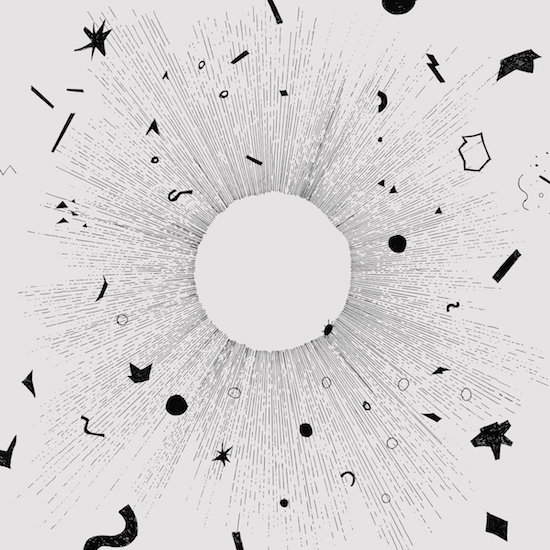It can be difficult to appreciate the benefits of simply spending time with a record. The desire to feel on top of everything can lead to us engaging with nothing; but sometimes you’re caught out by a record, bowled over in fact, and reminded that paying proper undivided attention to music is (actually, must be) a revelatory, luxurious experience. Comprehension of Light makes this happen. It is a work of extraordinary power and insight; one that has the patience of Job, one that only reveals its true power after a few listens.
In trying to describe just what is so good about this LP, a hamfisted metaphor suggests itself; one in part suggested by Evgrafov’s nationality. Apologies for that, of course. But in sensing the record’s steely purpose and power, I can’t help thinking of this record as a sonic take on Tatlin’s Tower, the St Petersburg constructivist tower that was never built: it’s a twin helix of sound and composition, bravura display of samples and orchestrated pieces that spiral up into the sunlit uplands.
And, like Tatlin’s construction, what is really marvellous about Comprehension of Light is its old-fashioned, enervating sense of rigour. There is a feeling that nothing is left to chance. And there is also (and a factor that is far more rewarding), a sense that some musical passages were the result of spur-of-the-moment decisions or insights, or even gambles initiated by recording processes on other tracks.
This marriage of cognitive steel and will-o-the-wisp character is heard best in the extraordinary opening three tracks. They sidle up after one or two listens, showing themselves to be incredibly supple, possessing a monumental power and a feeling of existing beyond time. Noises whisper and rustle through opener ‘A Gleam’ like the wind through centuries-old grasslands, cementing a hunch we are listening to the prelude to something special. I found out via a recent tQ interview that the track was constructed from “choir samples […] played back in a pine forest while standing about 30 metres deep into the woods”, which only increased the sense of off-the-cuff magic. If that wasn’t enough, second track ‘Tamas’ is an unnerving piece that slowly builds to a crescendo, only to dissolve and then build up for a second helping. Initially driven by a steady thunk (one that resembles the dripping of water or the tapping sound of a pickaxe in a mine), the track is fortified by sonorous brass parps and a build of midrange tonalities which unleash a powerful assault on the senses. The tension is extraordinary. Then we have the third in the sequence, ‘Ungrounded’, whose incredibly dextrous arrangements apply a much needed balm; they’re like gossamer takes of the orchestra build-and-crash that introduces Klaus Schultze’s “krazy” kosmische LP, Irrlicht. The balance between what sounds like an elephant being deflated and the dolorous string passage could be terribly pretentious, but it isn’t.
There are some truly magnificent tracks elsewhere on the record, too; ones that almost defy description. If you are still standing past the midpoint (where you will have been shaken by the spectral beauty of ‘Through the Gloom’), you’ll need to be braced for yet more emotional punches. On the glorious ‘Kintsukuroi’ – a collaboration with Benoît Pioulard from Orcas – the gently unfolding open harmonies remind me of Aaron Copland. The radiant ‘Znanie’ – another collaboration, this time with the great Abul Mogard – is bathed in a 1970s afterglow; it basks in the heat off the tracks just after the Trans Europe Express has whistled past. Evgrafov’s own ‘Rootedness’ is a ghostly, restless ballroom lament that revels in contrast, with staccato endings and sonic trapdoors. This is essentially a battle between sun and moon, between piano and strings; both sections compete for the honour of wringing the most emotive power out of their allotted part. The ending is a bobby dazzler too: ‘Sattva’ is a murmuring, patient play of light on water, with bird song and a slow piano progression that somehow draws on, and overtakes, every alternative modern classical trope going.
This is a remarkable, invigorating record. A revelation. One that – unsurprisingly given its narrative arc – feels as if it’s bathed in light. Driven by the idea of light. Every head should own it.


